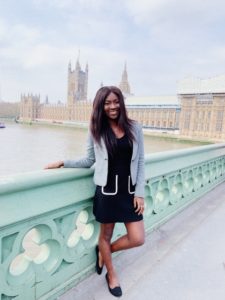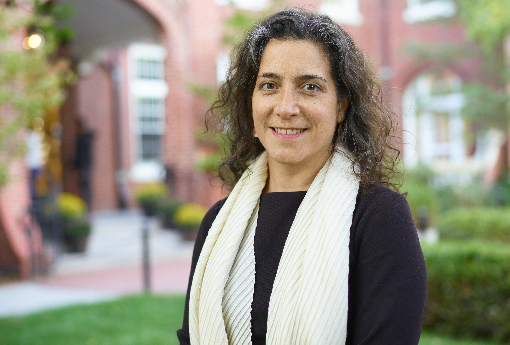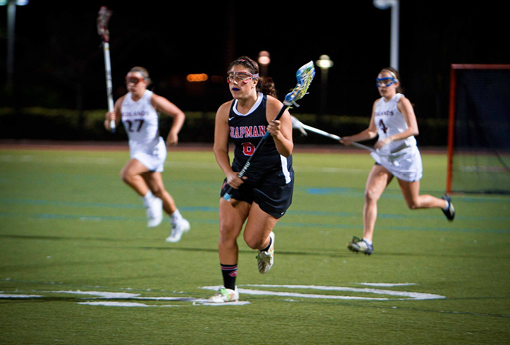
A Q&A with Elizabeth Dabanka ‘16
December 10, 2019

By Meryl Willett, Storyteller
Currently, a student at Brandeis University majoring in Politics and International Global Studies with a minor in African & Afro American Studies, Elizabeth “Lizy” Dabanka `16 is making her way through politics with internships in Parliament in London and most recently an internship for the Office of US Senator Elizabeth Warren in Washington DC. We asked Lizy about her experience in London where she Interned for Parliament from January – April of 2019.
Interning for Parliament in London:
Q: What was it about this opportunity that sparked your interest?
LD: I’ve always had an interest in foreign relations and thought that the UK political sphere would be a similar and interesting model compared to the American system. I’m a bit of an Anglophile so going abroad to London and getting the opportunity to intern with a member of Parliament and engage in British politics in the midst of Brexit seemed like a once in a lifetime opportunity.
Q: Where did you study while in London?
LD: I studied abroad through the Hansard Society. It’s a think tank in the UK pretty intertwined with Parliament. The program is run through the London School of Economics and Political Science (LSE) so I was an associate student.
Q: What was your position?
LD: I was an intern in the office of Emma Lewell-Buck. She’s a Labour MP in the shadow cabinet for Opposition Leader Jeremy Corbyn before she resigned in the midst of Brexit.
Q: Tell me about your day-to-day tasks and projects you were working on?
LD: Working for MP Lewell-Buck I mainly did research on education (specifically in the field of Special Education). I wrote briefings for the MP on meetings that I attended for her, new policies that would be rolled out by the Government. I also helped to draft speeches and articles that the MP would deliver at events or publish in her constituency newspaper.
Q: What were your major takeaways?
LD: There was a huge learning curve. The British system is similar in a lot of ways to the American but also so distinctly different. I had to learn a lot of new lingo and terminology to be able to keep up in casual office conversation. By the end of my internship, I had sufficient knowledge of the Parliamentary system and could fluently speak about their institution of government with relative ease. The nature of my work (constant research), being in Parliament and reading the paper on the way home from work every day helped me to stay informed and up to date. I loved how the UK has a huge newspaper-reading culture. It was very normal for people to pick up an Evening Standard on the rush home from work and read it on the tube because that became routine for me.
Q: What memory stands out to you most when thinking back on this experience?
LD: I often think a lot about the difference in decorum in Congress vs Parliament because the latter can be shocking when exposed to it for the first time. Members of Parliament can be very abrasive in delivery and presentation in what often seems comical to outside viewers. I think the candor and honesty that I saw in their debates were very refreshing to what is often the case in the US. I was also quite amazed at how important and serious the British take tradition. Parliament looks like something right out of a medieval museum yet is functional and used every single day by the country’s leaders.
Interning for US Senator Elizabeth Warren:
Q: What did your US Government internship for Sen. Warren involve?
LD: This year, I also secured a 6-week internship working for the official office of US Senator Elizabeth Warren. Through an array of tasks, working the phones for Warren’s office was the most memorable. Everyone from Trump supporters calling to yell on the phone to enthusiastic Warren supporters calling to ask her to support certain bills on the senate floor definitely made work every day quite interesting. I learned a lot about conflict resolution working the phones as well as specific knowledge about varying types of waves in the political landscape that would cause a surge in phone calls like consideration of certain legislature (like the Equality Act or reparations).
Q: What is your advice for current students interested in pursuing politics?
LD: Start small. Get involved in local school government, start a campaign for a cause in your neighborhood, or volunteer your time on a volunteer trip. I think the most effective and authentic action comes from the bottom up, and by investing in the community you’re in, you’ll be more equipped to understand the needs of your community and act accordingly while supporting and raising the most marginalized voices possible.

